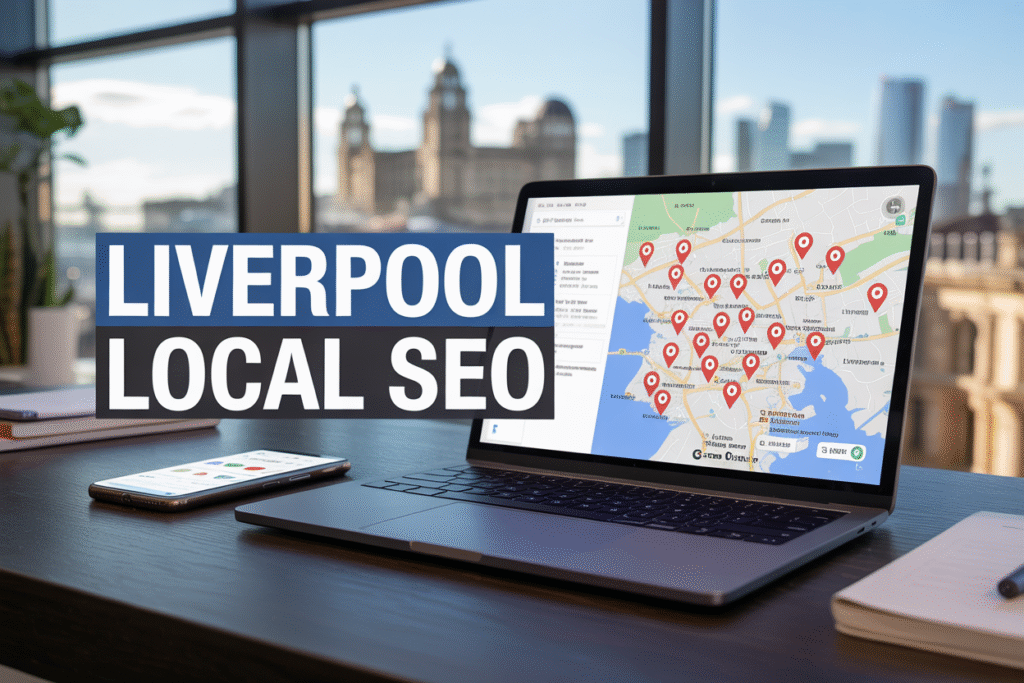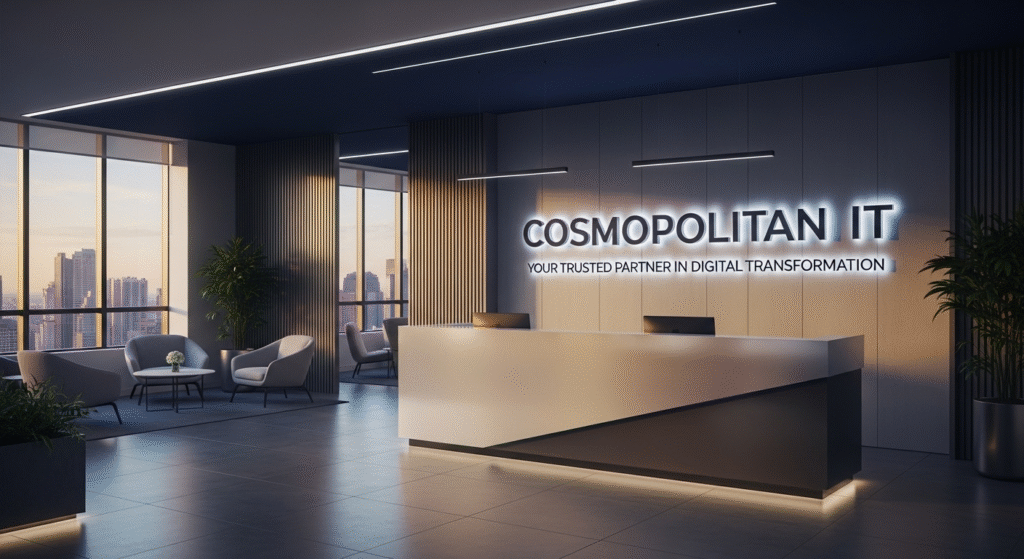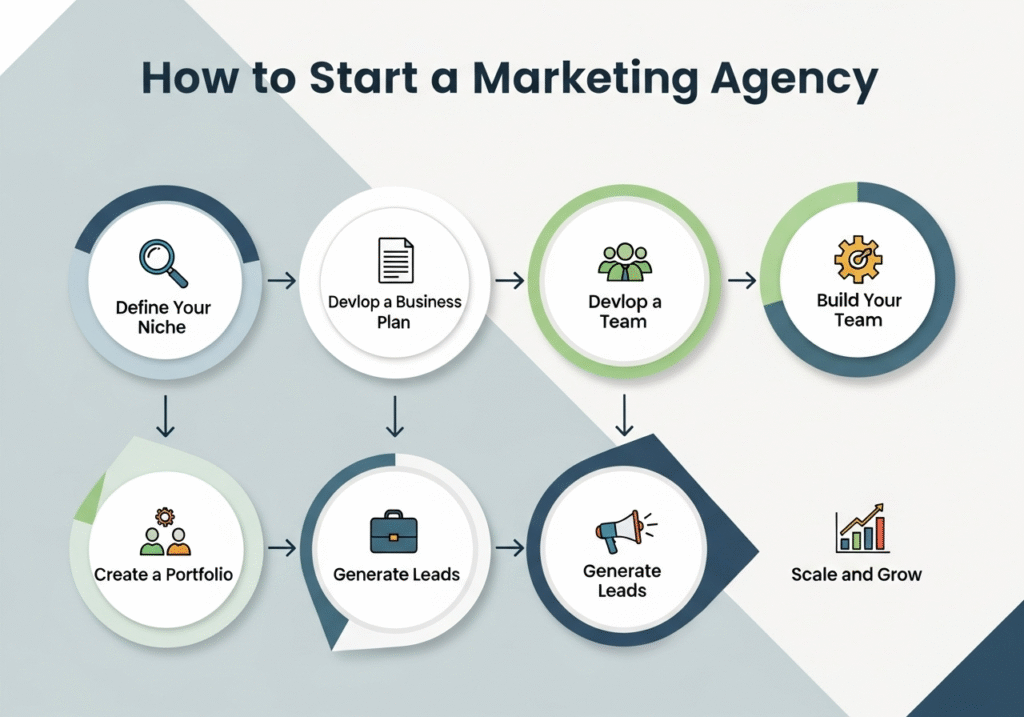Targeted SEO liverpool local maps ranking. Liverpool businesses are fighting for the top spots on Google Maps, and generic SEO won’t cut it anymore. You need targeted SEO Liverpool strategies that speak directly to local customers searching for your services right now.
This guide is for Liverpool business owners, marketing managers, and entrepreneurs who want their company to dominate local search results. You’re tired of watching competitors appear first when potential customers search for businesses like yours in Liverpool.
We’ll show you how to optimize your Google My Business profile to attract more local clicks and calls. You’ll learn how to research and use Liverpool-specific keywords that your customers actually type into Google. Plus, we’ll cover how to build local citations and directory listings that boost your local maps ranking fast.
Ready to stop losing customers to competitors who rank higher? Let’s get your Liverpool business the local visibility it deserves.
What Is Targeted SEO Liverpool Local Maps Ranking?

Key ranking factors For Liverpool businesses
Google’s local ranking algorithm weighs several critical factors when determining which Liverpool businesses appear in the coveted local maps pack. Proximity remains the most significant factor – your business location relative to the searcher’s position directly impacts visibility.
If someone searches “targeted SEO Liverpool” from the city center, businesses within that radius get preference over those in outer suburbs.
Google My Business completeness and accuracy drives substantial ranking power. Businesses with fully optimized profiles, complete contact information, accurate hours, and regular photo updates consistently outrank incomplete listings.
Your GMB category selection must precisely match your services – choosing “SEO Agency” over generic “Marketing Consultant” provides better targeting.
Review quantity and quality significantly influence local maps ranking. Liverpool businesses averaging 4+ stars with fresh, detailed reviews rank higher than competitors with sparse feedback. The review velocity matters too – consistent monthly reviews signal active customer engagement to Google’s algorithm.
Local citation consistency across directories, social platforms, and industry-specific listings creates trust signals. Your business name, address, and phone number (NAP) must match exactly across all platforms. Inconsistent information confuses Google and damages ranking potential.
Common SEO Mistakes Local Businesses Make
Liverpool businesses frequently sabotage their local SEO efforts through preventable errors. Neglecting Google My Business optimization tops the list – many companies claim their listing but never complete essential elements like business descriptions, service areas, or regular post updates.
Keyword stuffing in business names represents another costly mistake. Adding “Best Liverpool SEO Agency” to your official business name might seem smart, but Google penalizes this practice and can suspend your listing entirely.
Ignoring mobile optimization proves particularly damaging for local search. Over 78% of local searches happen on mobile devices, yet many Liverpool businesses maintain desktop-only thinking. Slow-loading sites, difficult navigation, and poor mobile user experience directly impact local rankings.
Inconsistent NAP information across the web creates confusion. One common scenario involves businesses moving locations but failing to update old directory listings. This conflicting information signals unreliability to search engines.
Generic content creation without location-specific elements wastes opportunities. Writing blog posts about “SEO tips” instead of “SEO strategies for Liverpool retail businesses” misses valuable local targeting potential.
Why Location-Specific Optimization Matters?
Liverpool’s competitive business landscape demands hyper-focused local optimization strategies. The city’s diverse neighborhoods – from the business-heavy Commercial District to residential areas like Woolton – require tailored approaches for maximum search visibility.
Search behavior patterns in Liverpool reveal strong location preferences. Local customers frequently include area names in searches: “marketing agency Liverpool city center” or “SEO services near Albert Dock.” Businesses optimizing for these specific location modifiers capture more qualified traffic than those targeting broad terms.
Local competition intensity varies dramatically across Liverpool’s geography. City center businesses face fierce competition for generic terms, while suburban companies might dominate local searches with less effort. Understanding these dynamics helps prioritize optimization efforts effectively.
Mobile search dominance amplifies location-specific optimization importance. When Liverpool residents search on smartphones, Google prioritizes nearby businesses most relevant to their immediate location. This “micro-local” targeting creates opportunities for businesses serving specific neighborhoods or districts.
Trust and credibility factors strengthen when businesses demonstrate deep local knowledge and community connection. Content mentioning Liverpool landmarks, local events, or area-specific challenges resonates more powerfully than generic business messaging.
Competitor Analysis Strategies For Liverpool Market
Effective competitor analysis in Liverpool’s market requires systematic evaluation of businesses competing for your target keywords and geographic areas. Identifying direct competitors begins with searching your primary service terms plus “Liverpool” – businesses consistently appearing in top positions represent your main competition.
GMB profile comparison reveals optimization gaps and opportunities. Examine competitor business descriptions, photo quantities, review responses, and post frequencies. Note which competitors maintain active GMB posting schedules and which seem abandoned – this identifies quick win opportunities.
Local citation analysis uncovers valuable directory opportunities. Tools like BrightLocal or manual searching reveal where competitors maintain listings. Focus on directories where multiple competitors appear but you’re absent – these likely provide ranking benefits.
Content gap analysis identifies topics your competitors haven’t addressed. Liverpool-specific challenges, local business spotlights, or area-focused service guides might be missing from competitor content strategies. Creating this missing content positions you as the local authority.
Review strategy evaluation shows customer satisfaction patterns and response opportunities. Competitors with poor review management create openings for superior customer service demonstration. Note common complaint themes across competitor reviews – addressing these proactively in your business prevents similar issues.
Local link building reconnaissance reveals partnership and sponsorship opportunities. Examine competitor backlink profiles for local organizations, business groups, or Liverpool-specific websites linking to them. These sources often accept new partners or sponsors, creating link building possibilities for your business.
Essential Google My Business Optimization Techniques
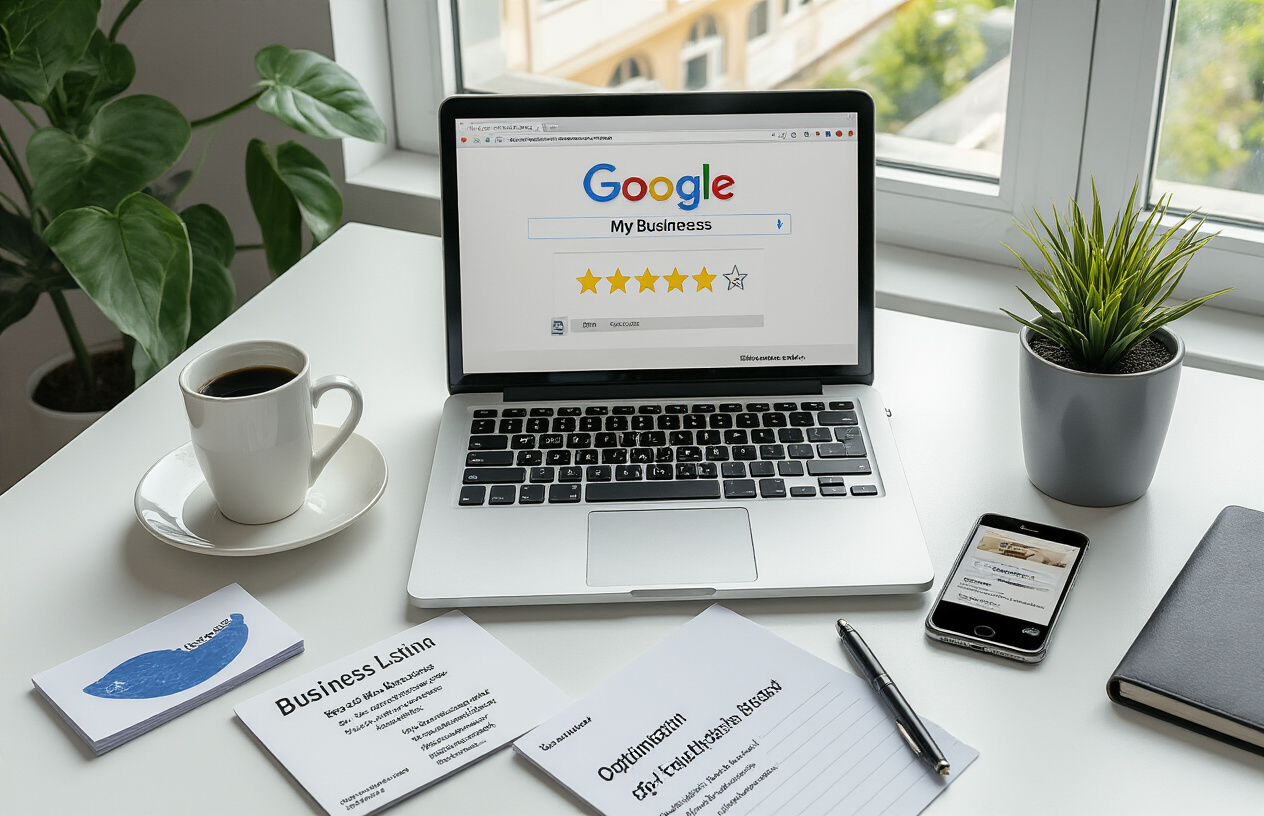
Complete Profile Setup with Accurate Business Information
Your Google My Business profile serves as the foundation for achieving better local maps ranking in Liverpool. Start by claiming your business listing and filling out every available field with precise, consistent information.
Your business name should match exactly what appears on your storefront and website – no creative variations or keyword stuffing. The address field requires special attention for Liverpool businesses.
Use the exact format that Royal Mail recognizes, including proper postcodes like L1 8JQ or L3 4AA. Phone numbers should be local Liverpool numbers whenever possible, as Google favors businesses with local phone numbers for regional searches.
Select your primary business category carefully, choosing the most specific option that describes your services. Liverpool businesses often benefit from categories like “Marketing Consultant,” “Digital Marketing Agency,” or “SEO Service” rather than generic options.
Add secondary categories that represent additional services you offer. Your business hours must reflect actual operating times. Liverpool customers rely on accurate hours, especially during holiday seasons or special events.
Enable the “More Hours” feature to specify different hours for phone support, pickups, or consultations. Upload high-quality photos showcasing your Liverpool location, team, and work environment.
Include exterior shots that help customers identify your building, interior photos that convey professionalism, and images of your team in action.
Strategic Keyword Integration in Business Descriptions
Your business description offers valuable space to naturally incorporate location-specific terms without appearing spammy. Write a compelling 750-character description that tells your Liverpool business story while mentioning relevant neighborhoods, landmarks, or service areas.
Focus on describing what makes your business unique within Liverpool’s market. Instead of generic phrases, highlight specific expertise like “helping Liverpool businesses improve their online visibility in competitive markets like the Albert Dock area” or “serving clients from Toxteth to Kirkdale with personalized digital strategies.
Mention nearby Liverpool landmarks, business districts, or neighborhoods where you operate. References to areas like the Baltic Triangle, Liverpool One, or the Cavern Quarter help establish local relevance. However, avoid cramming multiple location terms into awkward sentences.
Include your primary services naturally within the description. Rather than listing “SEO, PPC, social media,” explain how you help Liverpool businesses “increase website traffic, generate more leads through targeted advertising, and build stronger customer relationships through social platforms.”
Your description should answer why Liverpool customers should choose your business over competitors. Highlight awards, years of experience, or unique methodologies that set you apart in the local market.
Regular Posting and Update Strategies
Google My Business posts keep your profile active and provide fresh opportunities to engage Liverpool customers. Create a posting schedule that includes weekly updates, special announcements, and seasonal content relevant to Liverpool events.
Event posts work particularly well for Liverpool businesses. Create posts around local happenings like Liverpool Music Week, the Liverpool Food and Drink Festival, or Mathew Street Festival. Connect these events to your services by explaining how businesses can capitalize on increased foot traffic or online interest.
Product and service posts should highlight specific offerings with clear calls-to-action. Instead of generic “We offer SEO services,” create posts like “Helping Liverpool Restaurants Rank Higher on Google Maps – Book Your Free Consultation.” Include relevant photos and direct links to specific landing pages.
Update posts work well for announcing new services, team additions, or business improvements. Share behind-the-scenes content showing your Liverpool office, team training sessions, or client success celebrations. These posts humanize your business and build local connections.
Offer posts can drive immediate action from Liverpool prospects. Create limited-time promotions tied to local events or seasonal opportunities. “Free Website Audit for New Liverpool Startups This Month” generates urgency while targeting a specific local audience.
Managing And Responding To Customer Reviews Effectively
Review management directly impacts your local maps ranking and influences potential Liverpool customers’ decisions. Respond to every review within 24-48 hours, maintaining a professional tone regardless of review sentiment.
For positive reviews, thank customers specifically and mention details from their experience. Instead of generic “Thanks for the review,” write responses like “Thanks for mentioning how our Liverpool team helped increase your website traffic by 150%. We’re thrilled the strategy is working for your Aigburth location.”
Negative reviews require careful handling to protect your reputation while showing potential customers how you address concerns. Acknowledge the customer’s experience, apologize for any shortcomings, and offer to discuss solutions privately. Avoid defensive language or lengthy explanations in public responses.
Encourage satisfied Liverpool clients to leave reviews by making the process simple. Send follow-up emails with direct links to your Google My Business review section. Time these requests strategically – after successful project completions or positive feedback conversations.
Monitor review patterns to identify service improvements. If multiple Liverpool customers mention similar concerns, address these issues systematically. Use positive review themes to reinforce successful strategies and train team members on what customers value most.
Track competitor reviews in Liverpool to understand local customer expectations and identify opportunities to differentiate your business. Notice what Liverpool customers praise or criticize about similar businesses, then adjust your approach accordingly.
Local Keyword Research And Implementation
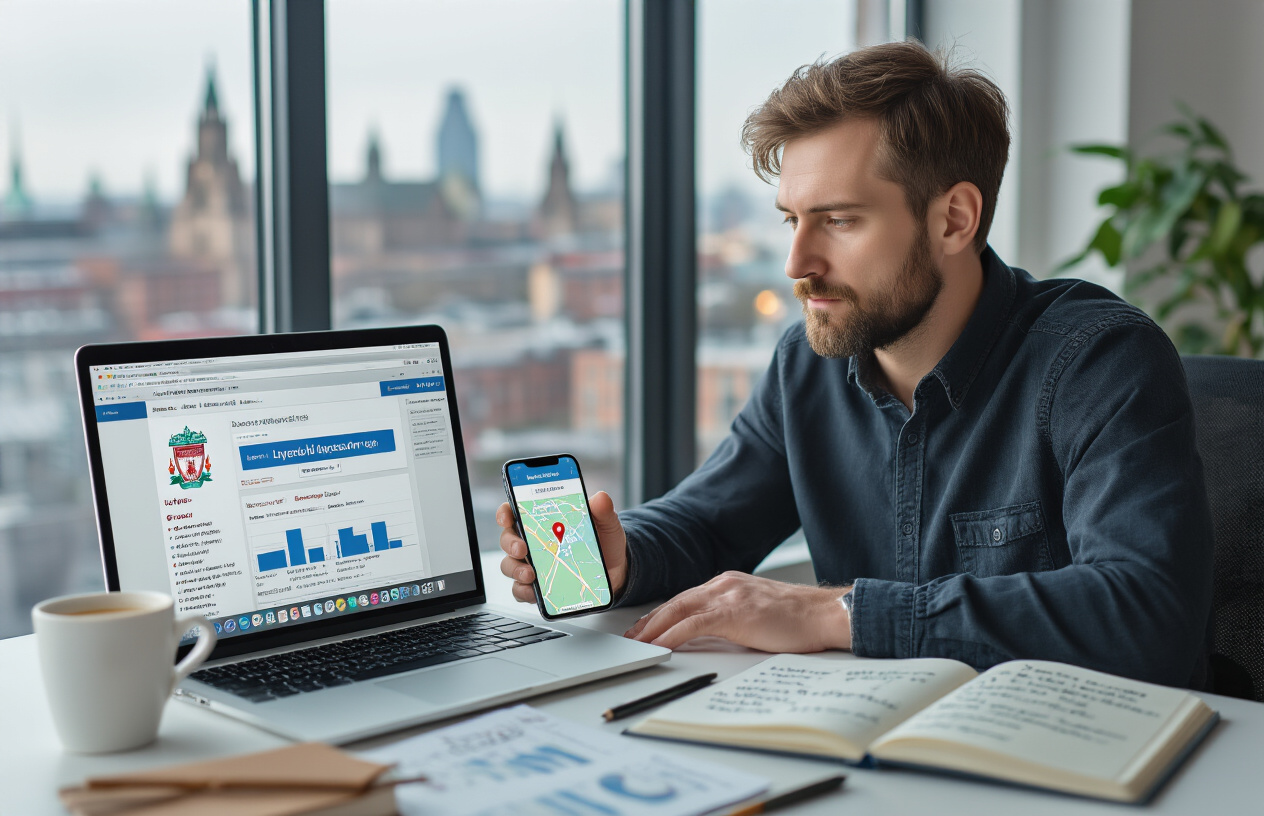
Finding High-Value Liverpool-Specific Search Terms
The foundation of successful targeted SEO Liverpool campaigns starts with discovering what your local customers actually search for. Generic keywords like “plumber” won’t cut it when competing against national chains. You need to think like a Liverpool resident searching for services.
Start by combining your main service keywords with Liverpool-specific modifiers. Instead of just targeting “accountant,” focus on “accountant Liverpool,” “accountant Merseyside,” or “chartered accountant near Liverpool ONE.”
These location-specific terms have less competition but higher conversion rates because they indicate clear local intent. Use Google’s autocomplete feature by typing your service plus “Liverpool” and watch the suggestions populate.
These represent real searches happening right now. Tools like Google Keyword Planner, SEMrush, or Ahrefs can reveal search volumes and competition levels for these terms.
Don’t overlook neighborhood-specific keywords either. Terms like “solicitor Woolton,” “dentist Crosby,” or “electrician Kirkby” can be goldmines for local businesses serving specific areas within Liverpool. These hyper-local keywords often have lower competition while attracting highly motivated local customers.
Long-tail keyword Opportunities For Local Traffic
Long-tail keywords are your secret weapon for dominating local maps ranking. While shorter terms like “restaurant Liverpool” face fierce competition, longer phrases like “best family restaurant Liverpool waterfront” offer better opportunities to rank and attract qualified traffic.
Think about how people naturally ask questions about local services. Phrases like “where can I find,” “best place to,” or “near me” combined with Liverpool locations create powerful long-tail opportunities.
For example, “where can I find reliable car repairs near Liverpool city center” targets someone ready to make a decision. Service-specific long-tail keywords work exceptionally well for local businesses.
Instead of competing for “lawyer Liverpool,” target “personal injury lawyer Liverpool consultation” or “employment lawyer Liverpool free advice.” These longer phrases indicate higher purchase intent and face less competition.
Consider seasonal and event-based long-tail keywords too. “Christmas party venues Liverpool 2024” or “wedding photographers Liverpool Cavern Club” tap into specific local events and timeframes that broader keywords miss entirely.
Integrating location keywords naturally in content
Keyword stuffing died years ago, but many businesses still cram “Liverpool” into every sentence until their content reads like a robot wrote it. Natural integration means weaving location keywords into your content in ways that actually help readers.
Create content that genuinely serves Liverpool residents. Write about local events, reference familiar landmarks, and discuss community issues. When you mention “parking near Liverpool Cathedral” or “walking distance from Lime Street Station,” you’re naturally incorporating location keywords while providing real value.
Use variations and synonyms to avoid repetition. Instead of constantly saying “Liverpool,” mix in “Merseyside,” “the city center,” “L1 postcode area,” or specific district names. This approach feels more natural to readers while still signaling location relevance to search engines.
Address local pain points in your content. A heating engineer might write about “dealing with Liverpool’s old Victorian houses” or “common plumbing issues in Toxteth terraces.” This naturally incorporates location keywords while demonstrating local expertise.
Optimizing For Voice Search And Mobile Queries
Voice search has transformed how people find local businesses. When someone asks Siri “find a good curry house near me,” they’re not typing “Indian restaurant Liverpool” into Google. Voice queries tend to be longer, more conversational, and question-based.
Optimize for natural speech patterns by including FAQ sections that answer common voice queries. “What’s the best pizza place in Liverpool?” or “Where can I get my car serviced in Woolton?” mirror how people actually speak to their devices.
Mobile queries often include immediate intent keywords like “open now,” “near me,” or “directions to.” Make sure your content addresses these micro-moments when people need instant local information. Include your opening hours, exact address, and clear contact information throughout your site.
Featured snippets capture many voice search results, so structure your content to answer specific local questions concisely. Use bullet points, numbered lists, and clear headings to make it easy for search engines to extract and present your information as voice search answers.
Remember that voice searchers often want quick, actionable information. A simple “We’re open until 9 PM and located 5 minutes from Liverpool Central Station” might capture more voice traffic than lengthy descriptions about your business history.
Building Local Citations and Directory Listings
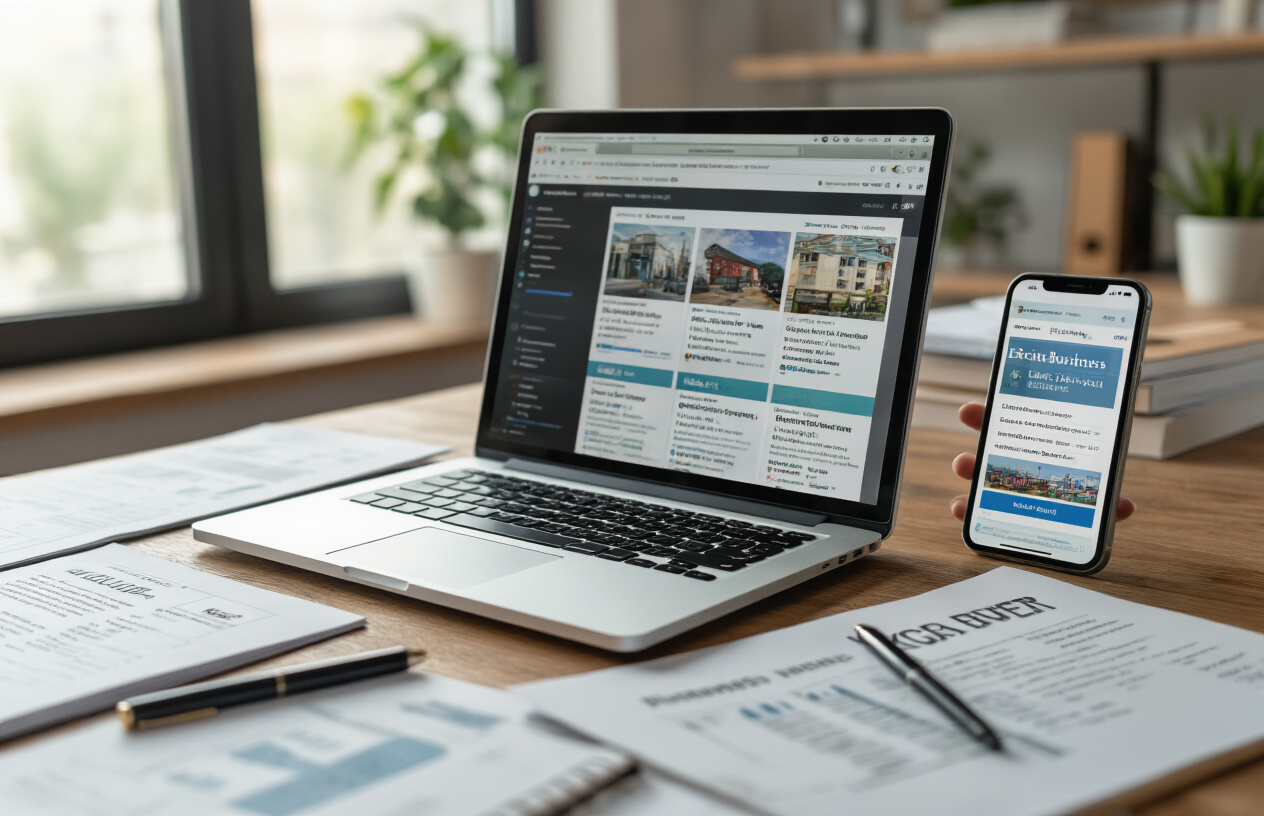
Top directories for Liverpool businesses
Building a strong foundation for your targeted SEO Liverpool strategy starts with listing your business in the right directories. Google My Business remains the most crucial platform, but don’t stop there. Yelp, Facebook, and Bing Places for Business form the core quartet that every Liverpool business needs to claim.
Local Liverpool directories deserve special attention. Liverpool City Council’s business directory offers excellent local visibility, while Visit Liverpool provides tourism-focused exposure for hospitality and retail businesses.
The Liverpool Chamber of Commerce directory carries significant weight with both search engines and local customers. Industry-neutral directories like Yell, Thomson Local, and 192.com still hold value in the UK market.
These established platforms have built trust with search engines over years and can boost your local maps ranking when properly optimized. Don’t overlook newer platforms gaining traction.
Nextdoor connects you with neighborhood communities, while TripAdvisor remains essential for restaurants and attractions. Each platform contributes to your overall citation profile and helps search engines verify your business legitimacy.
Ensuring NAP Consistency Across All Platforms
Name, Address, and Phone number consistency across every online mention of your business directly impacts your local search performance. Even minor variations can confuse search engines and dilute your ranking potential. Your business name must match exactly across all platforms.
If you’re registered as “Liverpool Marketing Solutions Ltd,” don’t use “Liverpool Marketing Solutions” on some directories and the full name on others. This inconsistency sends mixed signals to Google’s algorithms. Address formatting requires particular attention in Liverpool.
Use the same format consistently – whether you include the postal code on one line or two, whether you abbreviate “Street” as “St” or spell it out completely. Create a master document with your exact NAP information and reference it every time you create a new listing.
Phone numbers present another common pitfall. Decide whether you’ll use the international format (+44 151) or the national format (0151) and stick with it. Local Liverpool numbers should typically use the 0151 prefix format for consistency with local expectations.
Track every citation you create in a spreadsheet. Include the platform name, URL, date created, and any login credentials. This documentation becomes invaluable when you need to update information or audit your citations later.
Industry-Specific Citation Opportunities
Different industries have specialized directories that carry extra weight for local search rankings. Professional services can benefit from law directories, medical listings, or accounting associations. These niche platforms often have higher domain authority and more targeted audiences.
Liverpool’s maritime heritage creates opportunities for shipping, logistics, and marine services companies. The Port of Liverpool directory and maritime trade associations provide valuable industry-specific citations that general directories can’t match.
Healthcare providers should claim profiles on NHS directories, private health directories, and medical specialty platforms. These citations not only improve search visibility but also build trust with potential patients researching local healthcare options.
Restaurants and food businesses have numerous opportunities beyond Yelp and TripAdvisor. OpenTable, Deliveroo, Just Eat, and Uber Eats all provide citation value while offering additional revenue streams. Food hygiene rating directories also contribute to your citation profile.
Real estate professionals can tap into Rightmove, Zoopla, and property professional directories. These platforms carry significant authority in their sector and can substantially boost local search performance for property-related queries.
Monitoring And Managing Existing Citations
Regular citation audits prevent small inconsistencies from becoming major ranking problems. Set up monthly reviews to check your top 20 citations for accuracy and completeness. Use tools like Whitespark or BrightLocal to automate this process and catch errors quickly.
Duplicate listings pose a serious threat to your local search performance. When multiple versions of your business exist on the same platform, they compete against each other and confuse search algorithms. Immediately claim and merge duplicate listings when discovered.
Monitor review platforms connected to your citations. Many directory listings allow customer reviews, and these reviews impact your overall reputation and search rankings. Respond professionally to all reviews, both positive and negative, to show active business management.
Update citations promptly when business information changes. Moving offices, changing phone numbers, or rebranding requires systematic updates across all platforms. Delayed updates can create temporary ranking drops while search engines resolve conflicting information.
Track citation acquisition by competitors to identify new opportunities. If competing Liverpool businesses appear in directories you haven’t considered, investigate whether those platforms could benefit your business. Staying competitive in local search requires ongoing citation portfolio expansion.
Creating Location-Focused Content That Ranks

Developing Liverpool-Centric Blog Topics
Creating content that speaks directly to Liverpool audiences starts with understanding what locals care about. Think beyond generic business advice and dive into topics that reflect the unique character of the city.
Write about “Best co-working spaces near Liverpool ONE” or “How Liverpool’s maritime heritage influences modern business practices.” These targeted topics naturally attract local searchers while giving you opportunities to weave in location-specific keywords.
Consider seasonal angles that connect with Liverpool’s calendar. During International Mersey River Festival, create content around “Networking opportunities during Liverpool’s summer events.” When the Grand National approaches, develop pieces about “Marketing lessons from Aintree’s biggest weekend.”
This approach positions your business as genuinely embedded in the local community rather than just another generic service provider. The key lies in balancing local relevance with your expertise.
A Liverpool accountant might write “Tax planning for Liverpool’s growing tech sector,” while a marketing consultant could explore “Digital strategies for Bold Street retailers.” These topics demonstrate local knowledge while showcasing professional capabilities.
Incorporating Local Landmarks And Events
Liverpool’s iconic landmarks and vibrant event calendar provide endless content opportunities. Reference the Albert Dock when discussing waterfront business locations, or mention the Cavern Club when talking about creative spaces. These references create immediate recognition and connection with local readers.
Smart content creators build entire pieces around landmark-related themes. “Lessons in brand longevity from Liverpool Cathedral’s construction” or “What the Beatles Story teaches us about customer experience” blend local pride with valuable business insights.
This strategy works because people naturally search for information combining their location with their interests. Major events like Liverpool Food & Drink Festival or Sound City offer timely content hooks.
Create “How Liverpool restaurants prepare for festival season” or “Sound City’s impact on local venue marketing.” These pieces capture search traffic from people interested in both the events and your industry expertise.
Track Liverpool FC’s season for sports-related content angles. “What Anfield’s atmosphere teaches about customer engagement” resonates with the city’s football-obsessed population while delivering genuine business value.
Building Content Around Local Customer Needs
Liverpool businesses face unique challenges that generic content can’t address. Retail businesses on Bold Street deal with different foot traffic patterns than suburban locations. Companies in the Baltic Triangle navigate a different commercial landscape than those in the traditional city center.
Research local pain points through community forums, local Facebook groups, and direct customer conversations. Liverpool entrepreneurs often discuss specific challenges like “Parking solutions for Lark Lane customers” or “Competing with Liverpool ONE for retail attention.” These real concerns become content goldmines.
Address local regulations, planning permissions, and business support schemes specific to Liverpool. “Understanding Liverpool City Council’s business rates” or “Accessing Liverpool City Region growth funding” provides immediately actionable local value that national content can’t match.
Create location-specific how-to guides that acknowledge Liverpool’s unique geography and infrastructure. “Delivering services across Merseyside: logistics planning” or “Marketing to both city center and suburban Liverpool customers” shows deep understanding of local business realities.
Optimizing Images with Location-Specific Alt text
Image alt text presents a golden opportunity to reinforce local relevance without keyword stuffing. Instead of generic descriptions like “business meeting,” use “business meeting in Liverpool city center office.” This simple addition helps search engines understand your content’s geographic relevance.
Capture and use images of recognizable Liverpool locations where appropriate. A photo of your team outside the Liver Building gets alt text like “marketing team outside iconic Liver Building Liverpool.” Local landmarks in your imagery signal authentic local presence to both users and search engines.
For business-related images, include neighborhood references: “customers shopping on Bold Street Liverpool” or “office space in Baltic Triangle creative district.” These descriptions feel natural while building location relevance throughout your content.
Screenshot local search results, Google Maps views, or social media posts from Liverpool-based accounts. Alt text for these images might read “Google Maps results showing Liverpool city center businesses” or “Liverpool business owner testimonial screenshot.” This approach reinforces local authenticity while improving accessibility and SEO performance.
Advanced Local Link Building Strategies

Partnering with Liverpool Businesses And Organizations
Smart business partnerships create powerful link-building opportunities that benefit everyone involved. Reach out to complementary businesses in Liverpool – if you run a restaurant, connect with local event planners, wedding venues, or food suppliers.
These natural business relationships often lead to genuine link exchanges that Google values. Join the Liverpool Chamber of Commerce or local business networks. Members frequently reference each other on their websites, and these citations carry significant weight for targeted SEO Liverpool campaigns.
Look for cross-promotional opportunities where you can genuinely recommend each other’s services. Consider forming strategic alliances with businesses that serve similar customers but offer different services.
A web design company might partner with a local marketing agency, creating content collaborations that naturally generate backlinks while providing real value to both audiences.
Leveraging Local Events And Sponsorships
Liverpool hosts countless events throughout the year – from music festivals to charity runs to business conferences. Sponsoring these events often includes website mentions and backlinks from event organizers. Even small sponsorships of local sports teams or community events can yield valuable local citations.
Create your own events to attract links naturally. Host networking meetups, workshops, or charity drives. Local news outlets and community websites love covering interesting local happenings, especially when they benefit the community.
Document these events with professional photos and compelling stories that other websites want to share. Partner with existing event organizers to provide services or expertise.
Offer to speak at conferences, provide catering for meetups, or donate prizes for competitions. These contributions often result in organic mentions and links from grateful organizers.
Guest Posting on Liverpool-Focused Websites
Local websites and blogs constantly need fresh content. Liverpool has numerous community blogs, business journals, and neighborhood websites that welcome guest contributions from local experts. Research websites that cover your industry within the Liverpool area and pitch relevant topics.
Focus on providing genuine value rather than obvious self-promotion. Share insights about local business trends, offer tips specific to Liverpool residents, or discuss how your industry impacts the local community. Quality guest posts establish you as a local authority while earning valuable backlinks.
Build relationships with website owners before pitching. Comment thoughtfully on their existing content, share their posts on social media, and engage genuinely with their community. This groundwork makes your guest post pitches much more likely to succeed.
Building Relationships with Local Journalists And Bloggers
Liverpool’s media landscape includes newspapers, magazines, blogs, and online publications that regularly feature local businesses. Build genuine relationships with these content creators by being a reliable source of expert commentary and interesting story angles.
Follow local journalists on social media and engage with their content professionally. When they post about topics in your expertise area, offer thoughtful insights or additional information. Become known as someone who provides valuable quotes and reliable information.
Create newsworthy stories around your business activities. Launch new products with local angles, conduct interesting surveys about Liverpool-specific topics, or take stands on local issues.
Journalists appreciate businesses that generate compelling local content, leading to natural media coverage and high-quality backlinks that boost your local maps ranking.
Maintain a media kit with professional photos, company information, and key personnel bios. When journalists need quick information or quotes, being prepared and responsive increases your chances of coverage and the valuable links that come with it.
Technical SEO For Local Search Success

Optimizing Website Speed For Mobile Users
Mobile page speed directly impacts your local maps ranking in Liverpool. Google prioritizes fast-loading websites because users abandon pages that take longer than three seconds to load. This becomes even more critical for local searches, where customers often browse on-the-go looking for nearby businesses.
Start by compressing images without sacrificing quality. Use WebP format for modern browsers and implement lazy loading to delay image rendering until users scroll to them.
Minify CSS, JavaScript, and HTML files to reduce their size. Enable browser caching so returning visitors don’t need to download the same resources repeatedly. Consider using a Content Delivery Network (CDN) to serve your website from servers closer to Liverpool users.
This geographical proximity reduces loading times significantly. Remove unnecessary plugins and widgets that slow down your site, especially those that require external requests.
Test your mobile speed regularly using Google PageSpeed Insights and GTmetrix. These tools provide specific recommendations for improvement and show how your site performs compared to competitors targeting the same local market.
Implementing Structured Data Markup
Structured data helps Google understand your business information and display it prominently in search results. For local businesses in Liverpool, implementing LocalBusiness schema markup is essential for improving local maps ranking visibility.
Add organization schema to include your business name, address, phone number, and operating hours. Include review schema to showcase customer ratings directly in search results. Product schema helps if you sell specific items, while service schema works better for service-based businesses.
Use JSON-LD format rather than microdata or RDFa, as Google prefers this cleaner implementation. Include opening hours, accepted payment methods, and service areas within your markup. Don’t forget to add postal address schema with specific Liverpool postcodes to strengthen local relevance signals.
Validate your structured data using Google’s Rich Results Test tool. This ensures proper implementation and identifies any errors that might prevent your enhanced listings from appearing. Regular testing catches issues before they impact your local search visibility.
Creating Location-Specific Landing Pages
Dedicated landing pages for different Liverpool areas boost your chances of ranking in targeted local searches. Create separate pages for neighborhoods like City Centre, Docks, Toxteth, or specific postal codes where you serve customers.
Each page should feature unique content about that specific area, including local landmarks, community events, and area-specific services you provide. Avoid duplicating content across pages – instead, customize the information to reflect each location’s unique characteristics and your business’s connection to that community.
Include local testimonials and case studies from customers in each area. Add location-specific contact information, service hours, and driving directions. Embed Google Maps showing your proximity to that particular neighborhood or district.
Optimize each page’s meta title and description with the specific area name combined with your main services. This targeted approach helps you capture “near me” searches and location-specific queries that potential customers use when looking for local businesses.
Ensuring Mobile-Friendly User Experience
Mobile usability affects both user satisfaction and search rankings for local businesses. Google’s mobile-first indexing means your mobile version determines how well you rank in local search results.
Design with thumb-friendly navigation in mind. Make buttons large enough to tap easily and ensure adequate spacing between clickable elements. Implement a hamburger menu for mobile to save space while maintaining easy navigation.
Your click-to-call button should be prominently displayed, making it simple for customers to contact you immediately. Optimize forms for mobile input by using appropriate keyboard types for different fields.
Phone number fields should trigger the numeric keypad, while email fields should show the email-specific keyboard. Keep forms short and only ask for essential information to reduce abandonment rates. Test your website on various devices and screen sizes.
What looks perfect on your desktop might be unusable on a smartphone. Use Google’s Mobile-Friendly Test to identify specific issues that need fixing. Pay attention to font sizes, image scaling, and horizontal scrolling problems that frustrate mobile users and hurt your local search performance.
Measuring and Tracking Your Local SEO Progress

Setting up Google Analytics For local Tracking
Getting Google Analytics properly configured for your local Liverpool business gives you the data foundation needed to track your targeted SEO Liverpool efforts. Start by setting up location-specific goals that matter for local businesses – phone calls, direction requests, and contact form submissions from your service area.
Create custom audiences based on geographic data to isolate traffic from Liverpool and surrounding areas. This helps you see exactly how well your local maps ranking improvements are driving relevant visitors. Set up enhanced ecommerce tracking if you run an online store, making sure to segment data by location.
Configure event tracking for key local actions like clicking your phone number, requesting directions, or downloading location-specific resources. These micro-conversions often lead to bigger wins and give you early indicators of SEO success.
Monitoring Google My Business insights
Your GMB insights dashboard contains goldmine data that most Liverpool businesses completely ignore. Check your discovery metrics weekly to see how customers find your listing – direct searches, discovery searches, or branded queries each tell different stories about your visibility.
Pay close attention to the actions people take after finding your listing. Phone calls, website visits, and direction requests show real engagement, not just vanity metrics. Track these numbers against your SEO efforts to spot correlations.
Photo views and customer actions around your images reveal which content resonates with local searchers. Popular photos often indicate what services or products Liverpool customers care about most.
Tracking keyword Rankings And Visibility
Rank tracking for local SEO goes beyond traditional keyword monitoring. Focus on “near me” variations and Liverpool-specific terms that your target customers actually use when searching for your services.
Use tools that can track rankings from specific locations within Liverpool, since Google shows different results based on the searcher’s exact location. What ranks well in the city center might perform differently in Aigburth or Woolton.
Monitor your local pack rankings separately from organic results. Many local businesses make the mistake of only tracking organic positions while missing opportunities in the map pack, where most local clicks happen.
Track competitor visibility alongside your own rankings. If a competitor suddenly jumps in local maps ranking, investigate their recent changes to learn from their strategy.
Measuring Conversion Rates From Local Traffic
Raw traffic numbers don’t pay the bills – conversions do. Set up proper attribution tracking to connect local search traffic to actual business results like appointments, sales calls, and in-store visits.
Configure phone call tracking with unique numbers for different marketing channels. This lets you attribute phone conversions directly to your SEO efforts rather than guessing which marketing activities drive calls.
Track offline conversions using Google’s store visit tracking or by asking customers how they found you. Many local businesses miss this connection between online visibility and foot traffic.
Calculate the lifetime value of customers who find you through local search. These metrics justify your SEO investment and help you allocate marketing budget more effectively between different channels.

Local SEO for Liverpool businesses comes down to getting the fundamentals right and staying consistent with your efforts. From optimizing your Google My Business profile to building quality local citations and creating content that speaks to your Liverpool audience, each piece works together to boost your visibility in local searches.
The technical aspects matter too – your website needs to load fast and work perfectly on mobile devices where most local searches happen. Your success depends on tracking what’s working and adjusting your strategy based on real data.
Set up proper monitoring tools to watch your local rankings, website traffic, and customer actions. Keep building those local relationships through genuine link partnerships and directory listings, and remember that local SEO is a marathon, not a sprint.
Start with the basics outlined here, focus on one area at a time, and you’ll see your Liverpool business climbing up those local search results sooner than you think.
FAQs
1. What is targeted SEO for Liverpool businesses?
Targeted SEO for Liverpool businesses means making your website show up higher when people in Liverpool search for services you offer. It focuses on getting found by customers who are actually near you and likely to visit your business.
2. How can I improve my business ranking on Google Maps?
Start by claiming your Google My Business listing and filling out every detail completely. Add your exact address, phone number, business hours, and photos. Get customer reviews regularly and respond to them. Keep your information updated and post about your business often.
3. How long does it take to see results from local SEO efforts?
Most businesses start seeing some changes in 3-6 months, but significant improvements usually take 6-12 months. Local SEO is more like a marathon than a sprint – the work you do today builds up over time.
4. What’s the difference between regular SEO and local SEO?
Regular SEO tries to reach people anywhere who search for your services. Local SEO focuses on people searching in your specific area. Local SEO uses things like your business address, local keywords, and customer reviews to help nearby customers find you first.
5. Do I need different keywords for Liverpool local SEO?
Yes, you should use location-specific keywords like “plumber Liverpool,” “dentist near Merseyside,” or “Liverpool car repair.” Mix these with your regular service keywords to catch both local searches and people who mention your city specifically.
6. How important are online reviews for local search rankings?
Online reviews are really important for local rankings. Google sees lots of recent, positive reviews as a sign that your business is trustworthy and popular. Try to get reviews regularly and always respond to them professionally, even the negative ones.
7. Should I create separate pages for different Liverpool areas I serve?
If you serve multiple neighborhoods in Liverpool, creating location pages can help. Make each page useful with unique content about that area and the services you provide there. Don’t just copy and paste the same content with different area names.
8. What business information needs to be consistent across all websites?
Your business name, address, and phone number need to be exactly the same everywhere they appear online. This includes your website, Google My Business, Facebook, directories, and any other listings. Even small differences can hurt your local rankings.
9. Can social media help with local SEO in Liverpool?
Social media doesn’t directly change your search rankings, but it can help indirectly. When you post about local events, share customer photos, and engage with Liverpool community pages, it can drive more traffic to your website and help people find your business.
10. How do I track if my local SEO is working?
Check your Google My Business insights to see how many people found you through search and maps. Use Google Analytics to see if more local visitors are coming to your website. Track your rankings for Liverpool-specific keywords and monitor how many calls and visits you get from online searches.

